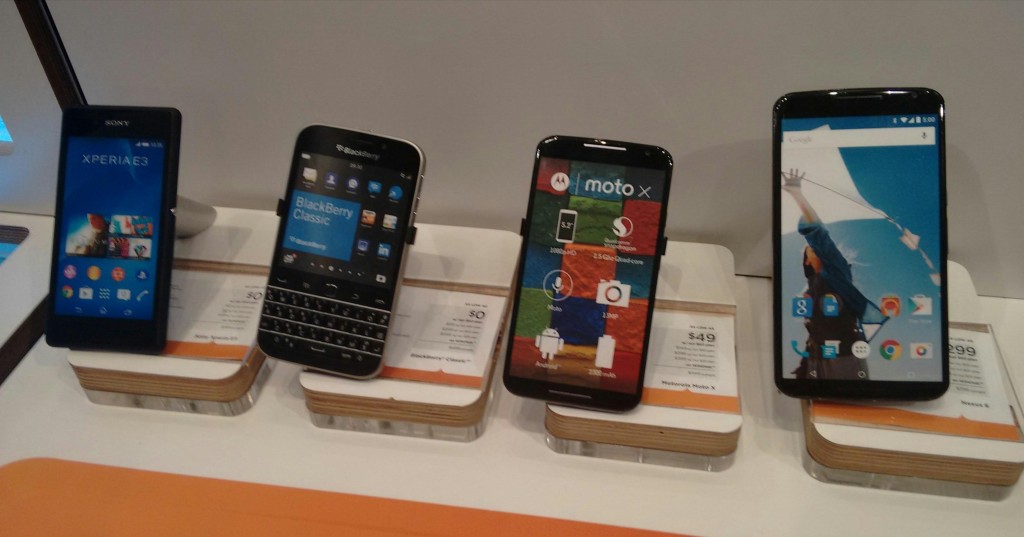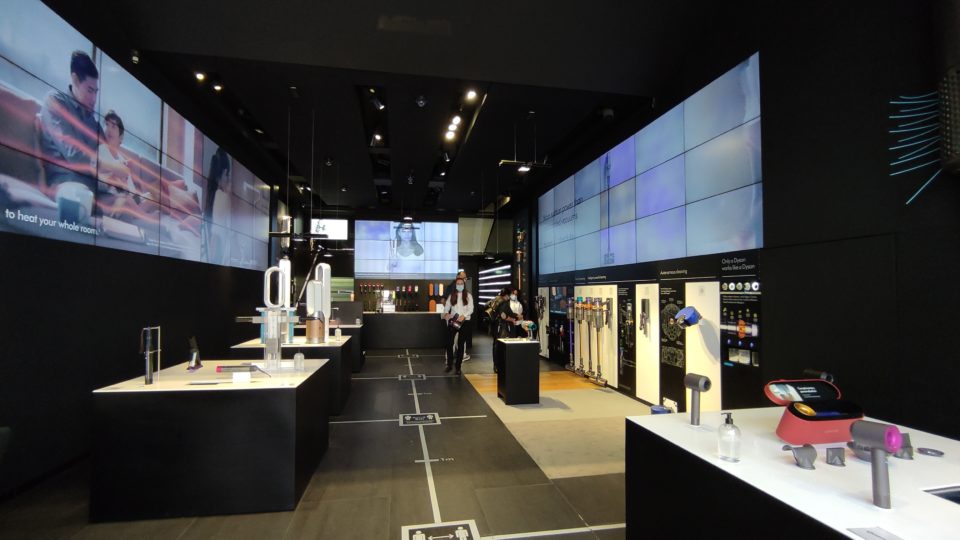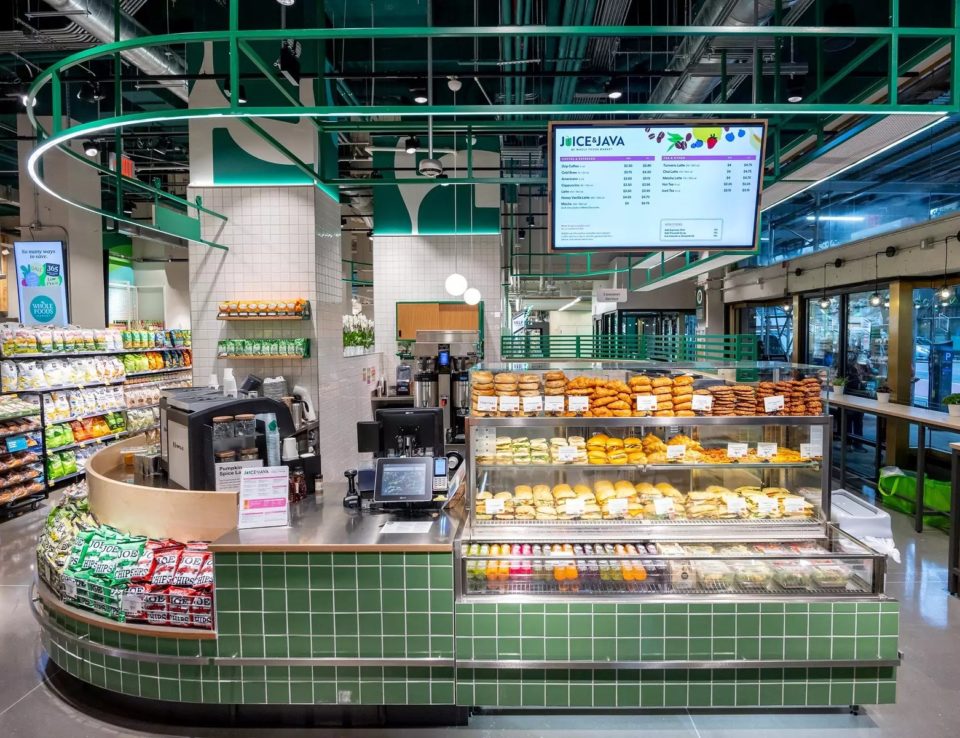Retail Trends Factfile: Smartphones
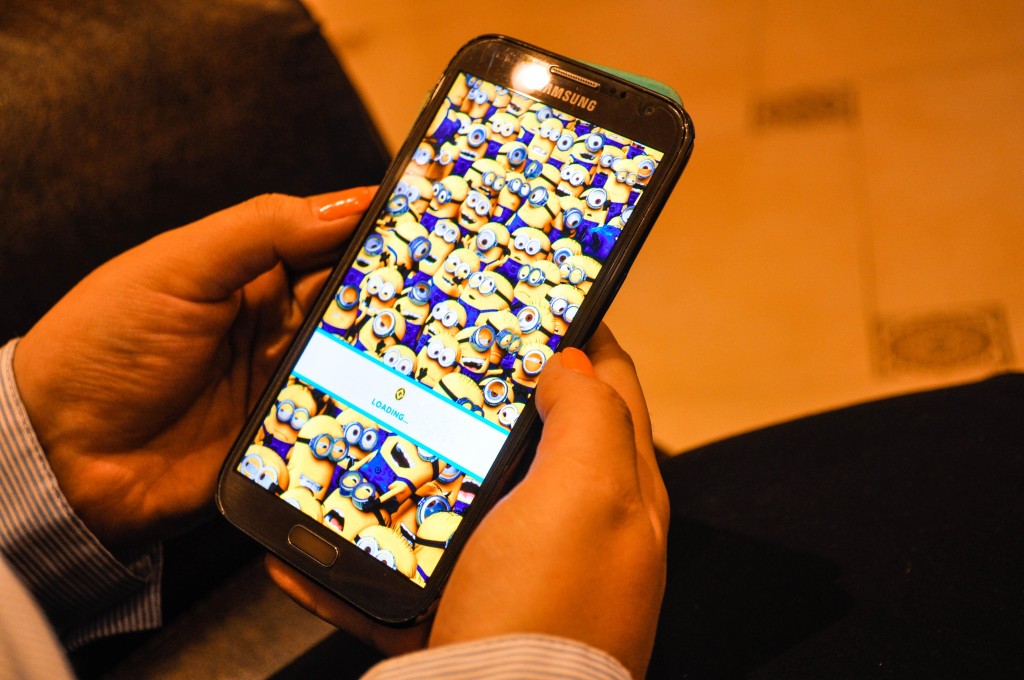
When looking to make a purchase, US consumers use their phones for various aspects. 61% use it to compare prices, 50% use it to research different products, 46% use it to find the nearest store location and 13% use it to make a purchase. (TimeTrade, 2015)
More than half of UK retailers (55%) have a smartphone app, while 35% operate in-store kiosks for browsing and transacting goods. (CBRE, 2014)
Online traffic from mobile devices is fast moving towards the 50% tipping point for retailers in Europe. (Forrester, 2015)
Phones are the primary source of growth for visits and baskets and now, for orders as well. Phones are the only device showing gains in traffic, accounting for 119% of the growth in visits. Tablets and computers provided fewer visits year over year, down 1% and 19% respectively. This trend continues into the basket, with phones driving 110% of the growth, and tablets, while tablets are at -1% and computers -9%, both providing fewer net baskets. (DemandWare, 2015)
Phone only buyers are up 75% worldwide whilst tablet only buyers are down 6% from 2014. (DemandWare, 2015)
Average time per phone visit is 8.4 minutes, a decrease of 12% from 2014. (DemandWare, 2015)
US and UK smartphone owners “use an average of 24 apps per month but spend more than 80 percent of their [in app] time on just five apps.” (Forrester, 2015)
The percentage of revenues “owned” by the top 10 companies in mobile is roughly parallel to the PC. Approximately 70%. (Emarketer, 2014)
Mobile payments also intrigue consumers: 60% would scan barcodes on items while shopping to track and pay at a self-service checkout and 49% would like to store several payment cards on smartphones and smartwatches to pay in stores by swiping the device at the checkout. Half of all shoppers would like some kind of “smart online shopping cart” that uses information from smart home appliances, purchasing history and items added by the consumer to maintain a constantly updated virtual cart. (Cisco, 2015)
If mobile payments replaced cash in the future, 74.8% would be concerned about fraud, 72.6% would be concerned about security, 59.6% about sharing too much personal data, 56% technology breakdown, 50.1% losing your mobile device and 41% running out of battery on your mobile device. (RetailWeek, 2015)
92% of 18 to 24 year olds in the UK own a smartphone. (RetailWeek, 2015)
In the UK, 22% of people use their phone for online bill payments. 18% use it for scanning QR or barcodes, 22% for finding/ redeeming coupons, 17% for theatre and event tickets, 16% for loyalty cards, 13% for boarding passes, 13% for payments in store at time of checkout and 8% for personal identification.
Facebook is making so much money from mobile and an increasing share of its ad revenue (69%) now comes from mobile usage. (Forrester, 2015)
In 2014, £8 billion was spent via mobiles over Christmas in the UK. Compared to £5.1 billion in 2013, this shows a 55% increase (CapGemini, 2014)
In the first quarter of 2015, the number of Brits using their smartphones to search for apparel rose by 54% (British Retail Consortium & Google, 2015)
In 2015, UK fashion retailers have benefited from a 10% increase in overseas shoppers searching online driven by smartphones (The Retail Bulletin, 2015)
In the UK in 2014, 37% of online sales were made on a mobile device. This is an estimated 8.9% of total retail sales (CapGemini, 2014)
9% of online transactions in the US in 2015 are made on a smartphone (Javelin Strategy & Research new mobile proximity payments forecast 2015)
38% of Britons under 24 research purchases online using their smartphones, compared to an average of 21% across all age groups (Google Consumer Barometer, 2014)
68% of Britons now have a smartphone in their pocket. This compares to 70% in China, 57% in America, 45% in Russia and 29% in Brazil (Google Consumer Barometer, 2014)
The average British household now owns 7.4 internet devices (YouGov Poll, 2015)
4 out of 10 UK households bought a tablet in the last year, meaning 7 out of 10 households now own at least one tablet, 19% have two and 11% own three or more (YouGov Survey conducted on 2,000 adults on 16/17 March 2015)
Worldwide, gadgets like tablets, smartphones and not-so-smart phones are multiplying five times faster than we are, with our population growing at a rate of about two people per second, or 1.2% annually (The Independent, 2014)
UK adults spend an average of 8 hours and 41 minutes a day on media devices compared with the average night’s sleep of 8 hours and 21 minutes (Ofcom, 2014)
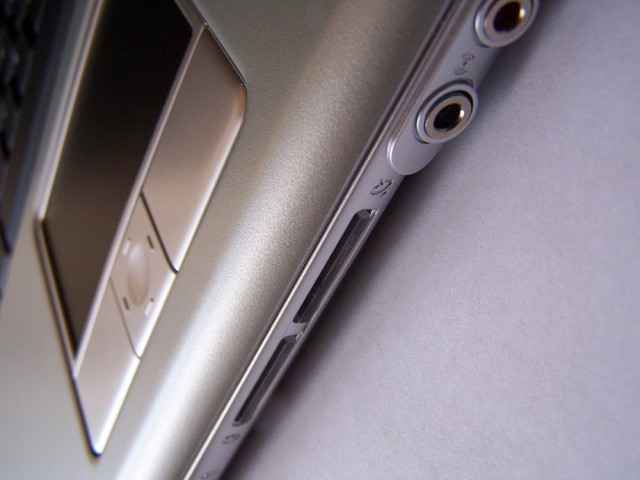
By 2017, 65.8 per cent of Britons will use smartphones (eMarketer, 2015)
Mobile commerce will grow by 55% in the next 5 years, with annual UK Consumer spend reaching £19.3 billion within a decade (Barclays Corporate, 2015)
More than 6 years ago, more than 60% of phone use was for talking, today that figure is les
s than 20% (McKinsey and Company reports, 2015)
The average UK household owns £1,375 worth of connected devices, such as smartphones, tablets, laptops, desktops, etc. This figure excludes devices which belong to businesses. This figure has risen by 108% over the past ten years.The total value of connected devices owned by all UK households is £33.4bn. (Webloyalty, 2015)
In the UK, 53% of consumers state they never use their smartphones for internet shopping purposes, rising to 64% for tablets (Webloyalty, 2015)
35% of UK mobile shoppers agree that mobiles are great for checking prices while in a store (Webloyalty, 2015)
Data shows that even when researching on a desktop, the purchase occurs on mobile 29% of the time (Internet Retailing, 2015)
30% of mobile users in the US use their device to compare prices when shopping in a bricks-and-mortar store (Forrester, 2014)
25% of North American mobile users search or redeem coupons on their smartphones (Forrester, 2014)
57% of mobile users in the US admit that loyalty programs and points are the top feature in a mobile wallet, with 56% giving that title to discounts and deals (Forrester, 2014)
50% of British consumers said that they would prefer on the day delivery notifications to be sent by SMS (openmarket eDigitalresearch, 2015)
In 2015, adults in the UK will spend 2 hours and 26 minutes each day on their mobiles rather than the 2 hours 12 minutes spent on a desktop or laptop (eMarketer, 2015)
60% of consumers will stay on hold for 5 minutes on the phone before hanging up (Eptica Multichannel Customer Experience Study, 2015)

